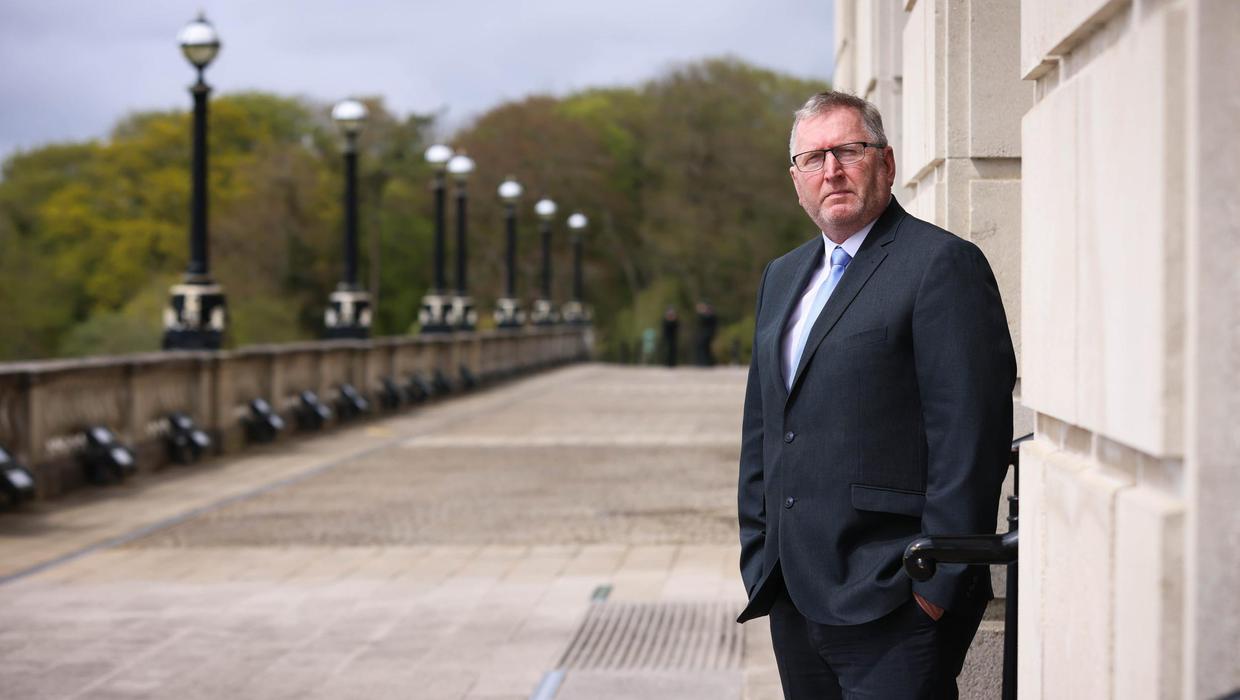
 health
health 
Ulster Unionist leadership hopeful Doug Beattie has hit out at the government’s ongoing lack of detail on legislation to tackle Northern Ireland’s legacy issues.
r Beattie, a former Army captain, has insisted there needs to be greater detail on how a bill will end the cycle of historic investigations.
The plans were outlined in the Queen’s speech, which outlined the government’s legislative agenda at the State Opening of Parliament yesterday.
It stated that “measures will be brought forward… to address the legacy of the past”, which are to be set out in the coming weeks.
In an interview with the Belfast Telegraph, Mr Beattie said the announcement is still too scant on details, but stressed the government must deal with the issue effectively.
“They do have to come up with a system that respects both the law and the victims, and all victims,” he said.
“I’m not sure they [the government] have laid that stall out in any shape or form.”
Reiterating the UUP will never endorse any “amnesty or statute of limitations” contained in legacy legislation, the Upper Bann MLA added: “We’ve been clear: if you break the law you should face the law”.
Speaking ahead of yesterday’s Ballymurphy inquest findings, he said he hoped it would bring “some truth and at least some closure for the families”, adding: “As ever, it is innocent civilians who have paid the price for terrorist actions and the military’s counter actions”.
Last night the UUP was due to meet virtually to decide on a timetable to appoint a new leader following the resignation of Steve Aiken.
Mr Beattie is the only candidate so far to throw his hat into the ring to become Mr Aiken’s successor — and the UUP’s sixth leader in 16 years.
He may face competition from Lagan Valley MLA Robbie Butler, who is considering running in the contest. He has said he will make a call before the end of Wednesday.
Outlining his vision for the party, the Portadown man said he wants to preside over a UUP which occupies the “centre-ground” in Northern Ireland’s political landscape.
“The challenges are becoming a party which is streamlined and fit for the 21st century, that we have policies which are clear and concise and that people on board can understand where we are and get on board,” he explained.
“At the same time we need to bring in more females and get them in high-profile positions and we need to bring in more young people and get them into positions where they can be influential.”
The 55-year-old also urged disgruntled DUP voters to consider if they are “better off now, than when they came to power”.
“If the answer to that question is no; we’re not better off, we’re not more secure, we’re not more stable, then we keep voting for the same thing over and over again, because you’ll just get the same thing back. And that is more decline.”
The ex-soldier emphatically ruled out a single unionist party, stressing it would be a non-starter from the beginning, given there are some supporters of the DUP and UUP who “would never vote for the other party”.
“Unionists right across the board have different views and policies. We have liberal unionists, we have socialist unionists, and we have conservative unionists and hard-right unionists,” said Mr Beattie.
“If we try and bring that into one party to capture that, people will just not vote for them. They will look elsewhere and we will haemorrhage votes to other political parties.”
He pointed to a “workable solution” to the contentious Northern Ireland protocol, proposed by a former UUP leader, Lord Empey, in relation to the trade that goes from Great Britain to ROI via here, that would ensure no borders North-South or East-West, as the way forward.
The MLA also believes that there are “too many” unionist parties, adding that some of them “don’t help” the cause of unionism.
“Some of them are right [politically], and some of them go further right, and others are in the centre which is where I hope to take the Ulster Unionist party,” he revealed.
The Military Cross recipient stressed this position would enable the UUP to move centre-right or centre-left on any particular issue.
“We’re looking to be inclusive, to reach out to everybody, be it the LGBTQ community, be it ethnically diverse backgrounds, be they small ‘n’ nationalists, Protestants and Catholics.”
Mr Beattie also stressed he wants to attract more working-class unionists to the party, pointing out that he himself grew up in a “loyalist estate in a house of six children in a three-bedroom house”.
“I know exactly what they’re going through and I’m appealing to them, and I’m appealing to those who view themselves as loyalists and I’m saying to them all: there is a unionist party that can represent you, and understand the difficulties you are going through,” he added.
Mr Beattie also defended his stance on the Loyalist Communities Council (LCC) after he said he would never take advice from the organisation.
In response to his call for it to disband, LCC chairman David Campbell said he was “astonished” to hear Mr Beattie’s remarks, and claimed the UUP man’s comments would “alienate” a “third of the electorate”.
“I would ask Mr Beattie to reflect on his comments and to reach out to support loyalist unionists rather than parrot the anti-loyalist rhetoric we have come to expect from Alliance and Sinn Fein,” he said.
However, Mr Beattie said he was unapologetic in his views, adding: “Paramilitarism does not represent loyalist communities.
“The loyalist community are some of the most forward-thinking people in Northern Ireland. They are some of the most socially-liberal people we have in Northern Ireland.”
24World Media does not take any responsibility of the information you see on this page. The content this page contains is from independent third-party content provider. If you have any concerns regarding the content, please free to write us here: contact@24worldmedia.com

